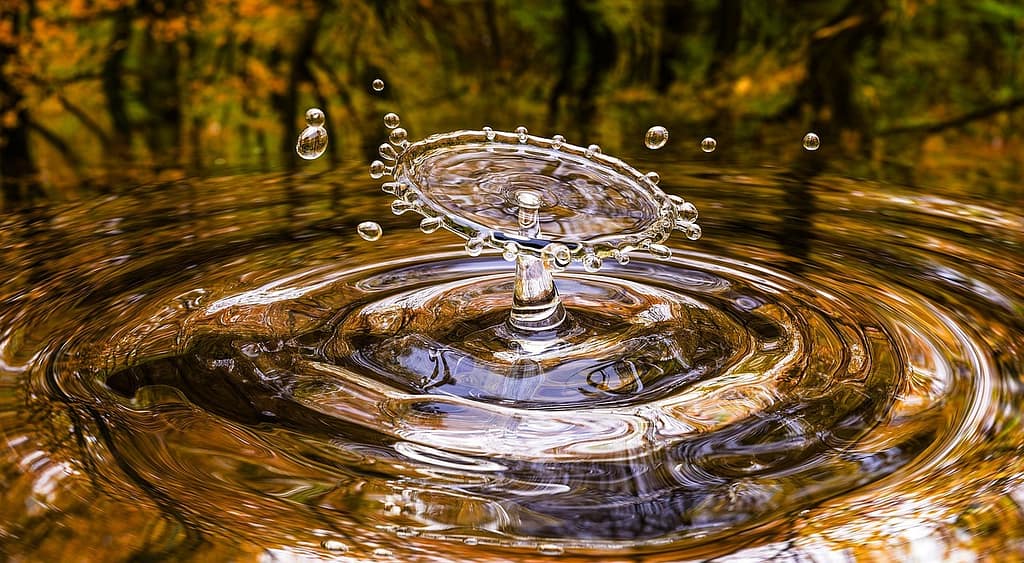Water: The Essence of Life
Water is the most abundant substance on Earth and the essence of life. It covers 71% of the Earth’s surface, and it is vital for all known forms of life, from microorganisms to humans. Water is the universal solvent, and its unique properties make it an essential component of all biological systems.
The Amazing Properties of Water
Water has many unique properties that make it crucial to life. Here are some of the most important ones:
– Cohesion: Water molecules stick together due to the polar nature of the water molecule, which has a positive charge on one end and a negative charge on the other.
– Adhesion: Water molecules stick to other substances, including the walls of containers, due to the polar nature of the water molecule.
– Solvent: Water can dissolve more substances than any other liquid, making it the universal solvent.
– Heat capacity: Water has a high heat capacity, which means it can absorb a lot of heat before its temperature rises.
– Density: Water is denser as a liquid than as a solid, which is why ice floats on water.

Why Water is Essential for Life
Water is essential for life because it plays many critical roles in biological systems, including:
– Transport of nutrients and waste: Water is the medium for transporting nutrients and waste in and out of cells. It carries dissolved nutrients and oxygen to cells and removes waste products and carbon dioxide from cells.
– Catalyst for biochemical reactions: Water is a reactant in many biochemical reactions, and its presence or absence can determine whether a reaction occurs or not.
– Regulation of body temperature: Water has a high heat capacity, which means it can help regulate body temperature. When the body temperature rises, water releases heat, and when the body temperature drops, water absorbs heat.
– Lubrication and cushioning: Water provides lubrication and cushioning for joints, organs, and tissues.
– Hydroelectric power: Water is used to generate hydroelectric power, which is a renewable and clean source of energy.
Water and Human Health
Water is essential for human health. It is involved in nearly every bodily function, including:
– Digestion: Water is necessary for digestion because it helps break down food and keep stool soft.
– Nutrient absorption: Water helps absorb nutrients in the gut, allowing them to be transported to cells throughout the body.
– Detoxification: Water is involved in the detoxification process, helping remove toxins and waste products from the body.
– Hydration: Water is essential for hydration, and dehydration can lead to a range of health problems, including headaches, dizziness, and fatigue.
Water and the Environment
Water is essential for the environment, and its quality and availability are critical to maintaining ecosystem health. Water is necessary for:
– Biodiversity: Water supports a diverse range of plants and animals, including fish, amphibians, and aquatic plants.
– Agriculture: Water is necessary for agriculture, and its availability can determine crop yields and food security.
– Industry: Water is used in many industrial processes, including cooling and cleaning.
– Energy production: Water is used to generate hydroelectric power, which is a renewable and clean source of energy.

Frequently Asked Questions
Q1: How much water should I drink daily?
A1: The recommended daily water intake is approximately 2.7 liters (91 ounces) for women and 3.7 liters (125 ounces) for men, including water from all sources.
Q2: Can I drink too much water?
A2: Yes, drinking too much water can lead to a condition called water intoxication, which can be fatal.
Q3: Is bottled water better than tap water?
A3: Bottled water is not necessarily better than tap water. Tap water is regulated more strictly than bottled water, and it is often of higher quality.
Q4: How can I reduce my water consumption?
A4: You can reduce your water consumption by taking shorter showers, fixing leaks, using drought-resistant plants, and using energy-efficient appliances.
Q5: Why does water taste different in different places?
A5: Water can taste different in different places due to differences in mineral content, pH, and temperature.
In conclusion, water is the essence of life. It is a unique substance with many amazing properties that make it crucial to biological systems. Water is essential for human health and the environment, and its quality and availability are critical to maintaining ecosystem health and food security. By understanding the importance of water, we can make informed decisions about our water consumption and help protect this vital resource for future generations.





Pingback: All About Spring vs Purified Water: Benefits, Differences, and Uses - Techy Tempest
Pingback: The Benefits of Spring Water for Your Health - Techy Tempest